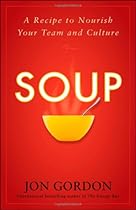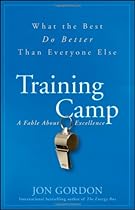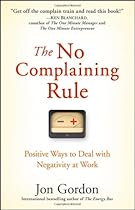| There are around 321,000,000 results for site:blogspot.com in the Google search engine. This means there are 321,000,000 indexed pages for blogs that are hosted in Google Blogger. Yet with this large number of pages, you've probably noticed that only a few of these blogs manage to get a decent Google ranking for most common blogging topics. Why? And can you duplicate their success? Keep reading. A quick list of the most common blogging topics is published here: http://promediablog.com/blogging-tips-10-most-popular-blog-topics-to-make-money-online/. For certain key terms, a few sites stand out. For example, for "film reviews blog," two results deserve further study: commonguyfilmreviews.blogspot.com and telugu-film-reviews.blogspot.com. For "pet blogs," internet-pets.blogspot.com is worth a look. For "fashion and jewelry blog," we'll look at three results: dcelestine.blogspot.com, in-vogue-jewelry.blogspot.com and profashionjewelry.blogspot.com. This article will examine the SEO characteristics of these blogs and what makes them rank in Google for their targeted terms. The information gathered by this observation can be used by aspiring bloggers to optimize their blogs for the best results in Google. Content is Still King: Consistency and Quality One of the common characteristics of most these blogs is that they emphasize writing quality content on a consistent basis. Another thing worth observing is the large minimum number of indexed pages on these blogs. Based on the sample provided, you can observe that most of them have indexed pages greater than 50; in short, all of the blog owners have written at least 50 posts for their blog. A high number of blogs in Google's top 10 even have hundreds to thousands of indexed pages. Regarding the quality of the content, these blogs feature original content, and most of their blog posts are more than 400 words long. These blog authors write useful and convincing content with the sole purpose of meeting the demands of their readers. The blogs' readers, especially those that are coming from Google, expect quality information, and these blogs deliver. You might observe that their content is not spammy in nature, and that the authors write naturally for their readers. Another thing worth observing is that these blogs do not contain too many ads on their pages. Well, you might have seen that most of Google's "blogspot" users set up blogs just for Google AdSense. As a result, their blogs contain a lot of ads, but little content, which is a mistake. But the top ranking blogs do not contain distracting or obtrusive ads. Instead, most of them even have no ads, or if they include an advertisement, it is clearly separated from the content, and limited. This implies that these blog authors are not blogging just for the purpose of making ad income; they are blogging to write great content which is helpful for their readers. Finally, they are not only writing quality content on a single occasion; most of these blogs are consistently updating and adding content. To summarize what we've learned:
These bloggers are active in their communities. Below are the things that these bloggers have in their blogs that promote community involvement: Facebook connect and social tools - These let readers share information in Facebook. They also let the author connect with their readers on a social platform to further discuss the topics relating to their blogs. A good way to use Facebook to interact with readers involves creating a Facebook page, such as here: http://www.facebook.com/CommonGuyFilmReviews Twitter - Another way for a blog author to get involved with his or her community of readers and followers is to use Twitter. Here is an example: http://twitter.com/commonguymovies Letting users share information through social bookmarking buttons - Many if not most of a blog's readers may have social bookmarking accounts, so if they like your story they might share it in Stumble upon, Digg, Delicious etc., thus increasing your blog's exposure. If you want to know why its important to get involved with your reading community, the following are the obvious reasons:
You cannot become an authority and a trusted resource if you do not get involved with your community, contribute and interact with your readers. These readers will often link naturally to blogs that they trust and know the author. Other tools you can use to get involved in the community include Google Connect and LinkedIn. You can even get involved simply by answering user comments in your blog. Here's a summary of tips:
Quality Link Profile You might ask: "How did these bloggers manage to get quality links?" Below is a snapshot of inbound links using Yahoo Site Explorer for sample ranking blogs: http://bit.ly/ihN9SV = commonguyfilmreviews.blogspot.com One thing you will immediately notice is that these are not links coming from forums, blog spam comments or even link directories. The links are coming from quality websites in the same niche. For example, examining the inbound link relevance profile of dcelestine.blogspot.com:
You can see that a high percentage of the inbound link pages have the topic of "fashion," which directly relates to dcelestine.blogspot.com's blog topic. Related backlinks have a strong impact on Google rankings. Another example is the link relevance profile of telugu-film-reviews.blogspot.com:
So, to answer the question: "How did these bloggers manage to get quality links?"
DISCLAIMER: The content provided in this article is not warranted or guaranteed by Developer Shed, Inc. The content provided is intended for entertainment and/or educational purposes in order to introduce to the reader key ideas, concepts, and/or product reviews. As such it is incumbent upon the reader to employ real-world tactics for security and implementation of best practices. We are not liable for any negative consequences that may result from implementing any information covered in our articles or tutorials. If this is a hardware review, it is not recommended to open and/or modify your hardware. Thanks to SEO Chat |
Training Camp: What the Best Do Better Than Everyone Else By Jon Gordon
Availability: Usually ships in 24 hours 57 new or used available from $10.89 Average customer review: |
Product Description
Training Camp is an inspirational story filled with invaluable lessons and insights on bringing out the best in yourself and your team. The story follows Martin, an un-drafted rookie trying to make it in the NFL. He's spent his entire life proving to the critics that a small guy with a big heart can succeed against all odds. After spraining his ankle in the pre-season, Martin thinks his dream is lost when he happens to meet a very special coach who shares eleven life-changing lessons that keep his dream alive—and might even make him the best of the best. If you want to be your best—Training Camp offers an inspirational story and real-world wisdom on what it takes to reach true excellence and how you and your team (your work team, school team, church team and family team) can achieve it.
Product Details
- Amazon Sales Rank: #19739 in Books
- Published on: 2009-05-18
- Original language: English
- Number of items: 1
- Dimensions: .70" h x 5.92" w x 8.44" l, .65 pounds
- Binding: Hardcover
- 176 pages
Features
- ISBN13: 9780470462089
- Condition: New
- Notes: BRAND NEW FROM PUBLISHER! BUY WITH CONFIDENCE, Over one million books sold! 98% Positive feedback. Compare our books, prices and service to the competition. 100% Satisfaction Guaranteed
Editorial Reviews
From the Inside Flap
In the spirit of his international bestseller The Energy Bus, Jon Gordon returns with another inspirational fable filled with invaluable lessons and insights on bringing out the best in yourself and your team.
Training Camp follows the story of Martin Jones, an undrafted rookie trying to make it in the NFL. He's spent his entire life proving to the critics that a small guy with a big heart can succeed against all odds. After spraining his ankle in the preseason, Martin thinks his dream is lost . . . until he meets a very special coach who shares eleven life-changing lessons that keep his dream alive—and might even make him the best of the best.
Whether you play sports or the piano, work with a computer or a scalpel, these lessons apply to you because we all must climb the mountain before reaching its peak.
Based on his work with professional sports teams, world-class organizations, and interviews with top professionals in a wide variety of fields, Gordon reveals the deep truths and proven strategies that take the very best to the top. Training Camp reveals that the best performers—in any field—all share the same qualities. Among other traits, the best of the best are able to maintain a big-picture vision while taking focused action, they are mentally strong, they seize the moment, and they inspire excellence in the people around them.
But these aren't inborn traits; they're skills and attitudes that can be learned and applied by all. If you want to be your best, Training Camp offers inspiring, real-world wisdom on what it takes to reach true excellence and how you and your team—whether at work, school, or at home—can achieve it.
From the Back Cover
A story for anyone who wants to be their best and bring out the best in others
"Training Camp by Jon Gordon is a touching story about one man who faces his fears on his path to greatness. Along the way, he learns a valuable lesson about who is really in control. Grow your faith. Read Training Camp."
—Ken Blanchard, coauthor of The One Minute Manager® and Lead Like Jesus
"I loved reading this book. Jon and I agree that one should not only strive for excellence on the field but also make greatness a life mission. I believe every coach, player, individual, organization, and team that wants to be their best should read and benefit from this book."
—Mike Smith, Head Coach, the Atlanta Falcons
"Having spent my life studying the best, I have found that great individuals need great coaches. Training Camp is not only about the student but the mentor. Jon has woven a compelling story of two individuals together, traveling life's journey, striving for excellence, and leaving a legacy in the process. I found myself cheering the main characters on from the sidelines. Thank you, Jon, for leaving a legacy with the profound lessons found in this book."
—Kimberly K. Rath, President, Talent Plus
"Training Camp is a great read for any leader, young or old—whether a coach, teacher, pastor, or CEO. Jon brings alive the key principles of the best of the best through the inspiring story of Martin Jones—a story built on the foundation of hope, hard work, and determination woven together to create excellence. Coaches, bosses, teachers, and leaders will find this book incredibly powerful and a great source of adrenaline for those they lead. It will inspire you to inspire others and to strive for excellence every day."
—Brad Lomenick, Vice President and Executive Director, Catalyst, a movement of next generation leaders
"Jon Gordon has written a poignant and powerful story that helps us find the best within ourselves and bring out the best in others. He will change lives with this book."?
—Jeffrey Zaslow, coauthor, The Last Lecture
About the Author
JON GORDON is a speaker, consultant, and author of the international bestseller The Energy Bus and The No Complaining Rule, both from Wiley. He and his books have been featured on CNN and NBC's Today show, and in Forbes; O, The Oprah Magazine; the Wall Street Journal; and the New York Times. His clients include the Atlanta Falcons, the PGA Tour, Northwestern Mutual, Publix Super Markets, Campbell Soup, and JPMorgan Chase.
Customer Reviews
Religious, not inspriational. There's a big difference.![]()
When the reviews say 'inspirational', they should really say 'religious'. This doesn't make it a bad book, the points made early on are good and I enjoyed the book until the final points and chapters. That's where it turns into a sermon. I wish that had been clear in Product Description as I would not have bought it. If I wanted a story of religion and faith, I would search one out...I don't.
Needed something extra![]()
This is the third book from Jon Gordon and the first that I have read through, although I think the recommendation would be to read them in order, you can still pick this up and get some value.
Written in a fable format, I found the book to be a very easy and quick read and one that you could likely pick up again. Couple of things that were missing for me that might stop me doing that though.
1. The fable was okay, albeit a little too similar to other stories heard or read. Young kids makes it in to the NFL after overcoming self doubt. Just felt it needed more punch or a twist that would have made the message more powerful. A little too predictable, you knew what was coming next.
2. There were no take aways in terms of concrete steps or actions, Just final page with the 11 traits listed and then a link to some further online resources, but there just seemed to be a disconnect between the message and helping you implement it day to day - a small accompanying downloadable workbook for example would be a good addition.
Funny thing though, after reading the book I did find myself asking the question "what would the best do?" if I had a challenge I was trying to tackle and did not feel so motivated to solve it.
Bottom line will need to go back and read again to see if it has more long term effect for me and probably go read his other two books.
Cleverly Disguised Evangelism![]()
I read the brief description and unfortunately purchased the audiobook. It started out great and I began thinking of all of the people I'd like to tell about this book with when I was done. Then it got to the point of being a bit wishy washy on substance and heavy on spirituality. When the spirituality turned into useless Christian evangelism I'd had enough. I did not want to tell anyone I knew about this book because I'd be embarrassed about being deceived into purchasing it. I know plenty of people I would consider the "best." Some are Christian and actually speak of the part their beliefs play in their success. "Part" is the key word. I also know plenty of people I would consider the "best" who are not Christian. They are just as good or better, and in no way discontent or unfulfilled. You do not have to "believe" to be the best. Once the book promoted this concept as an essential element of what the best do better than everyone else, it lost all credibility with me. I have my own beliefs, thank you. An author who suggests that I need to believe what they believe to be the best is a naively arrogant, although cleverly disguised evangelist. Well, you fooled me and got my money in the process. A good lesson for me to share on my way to being the best; it's as much about who you choose to avoid as it is about who you choose to follow. Advise: avoid this book.







